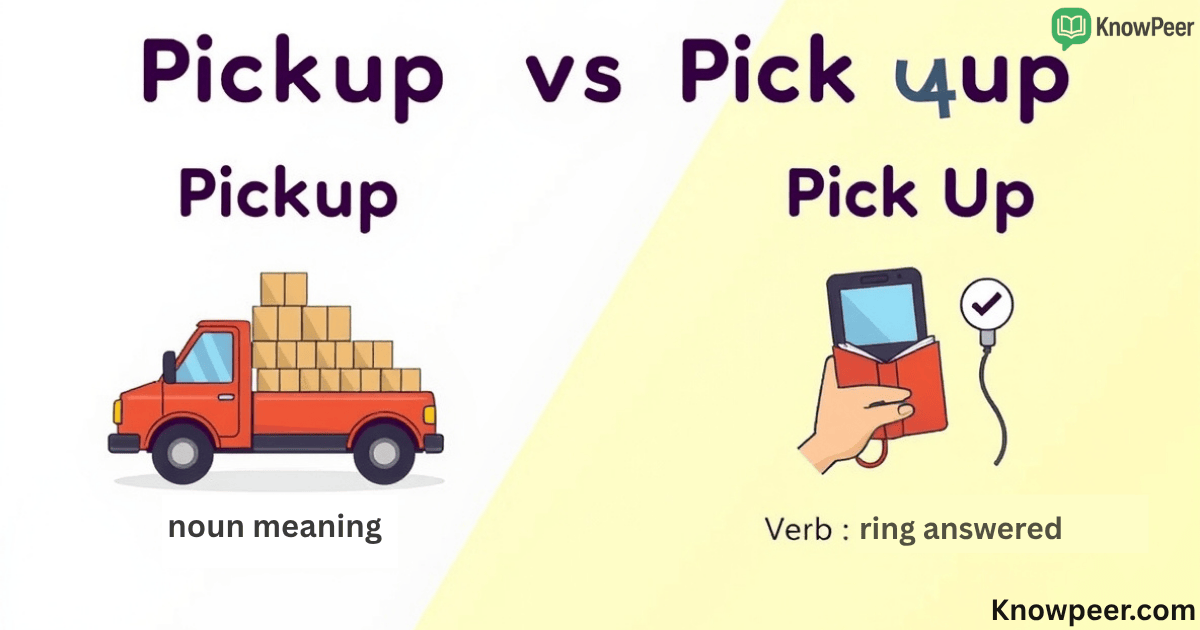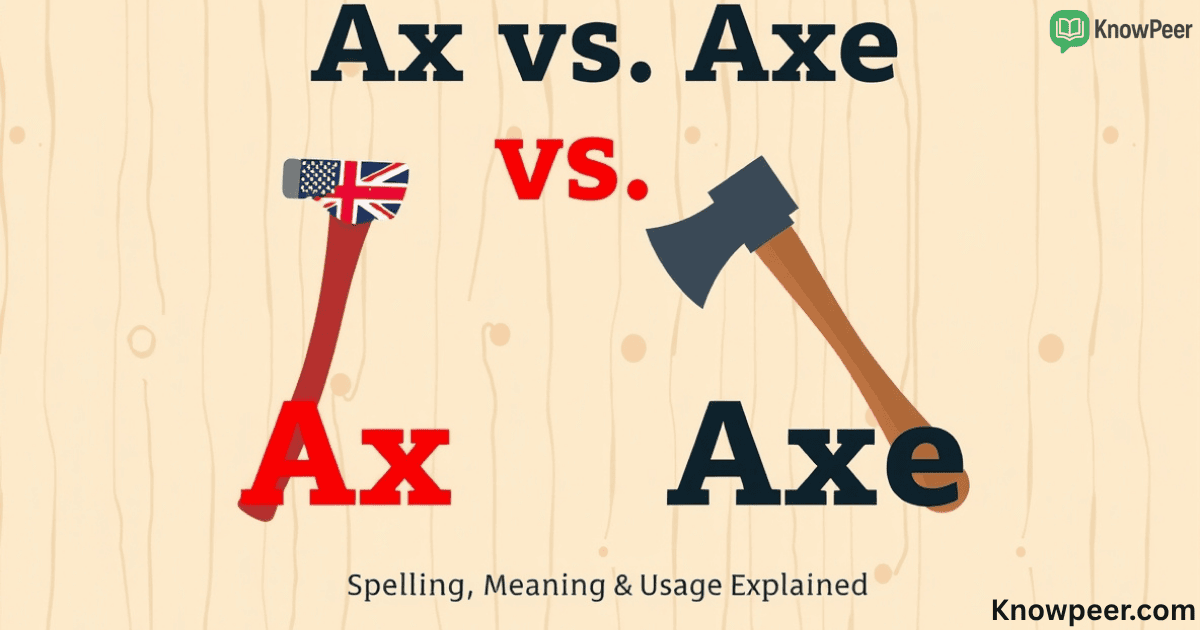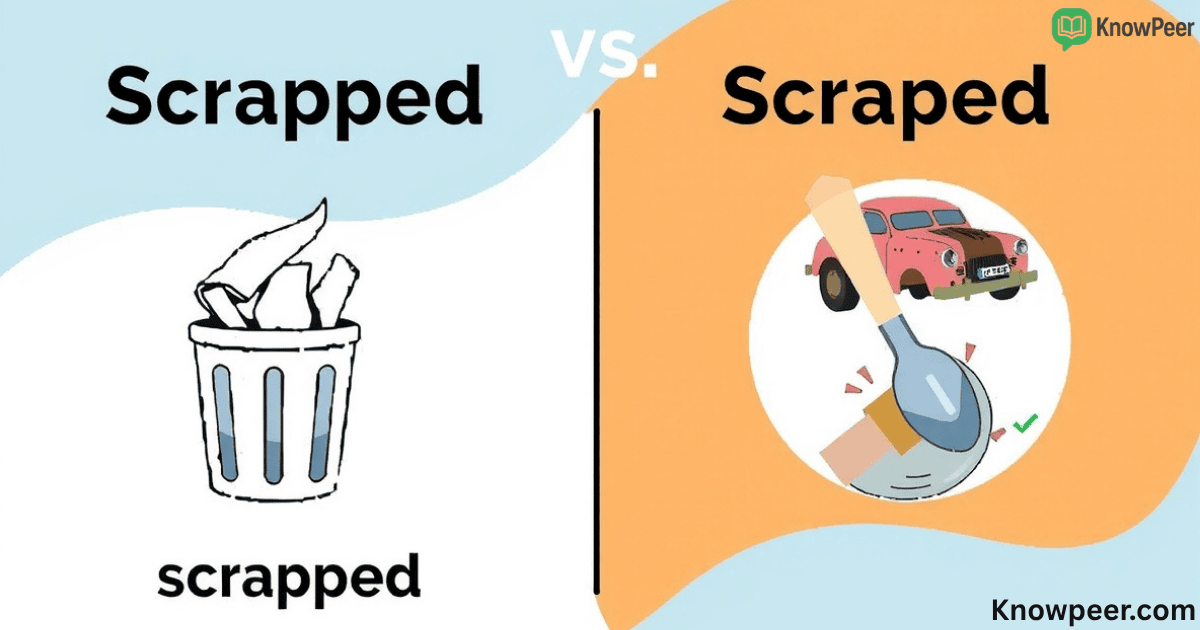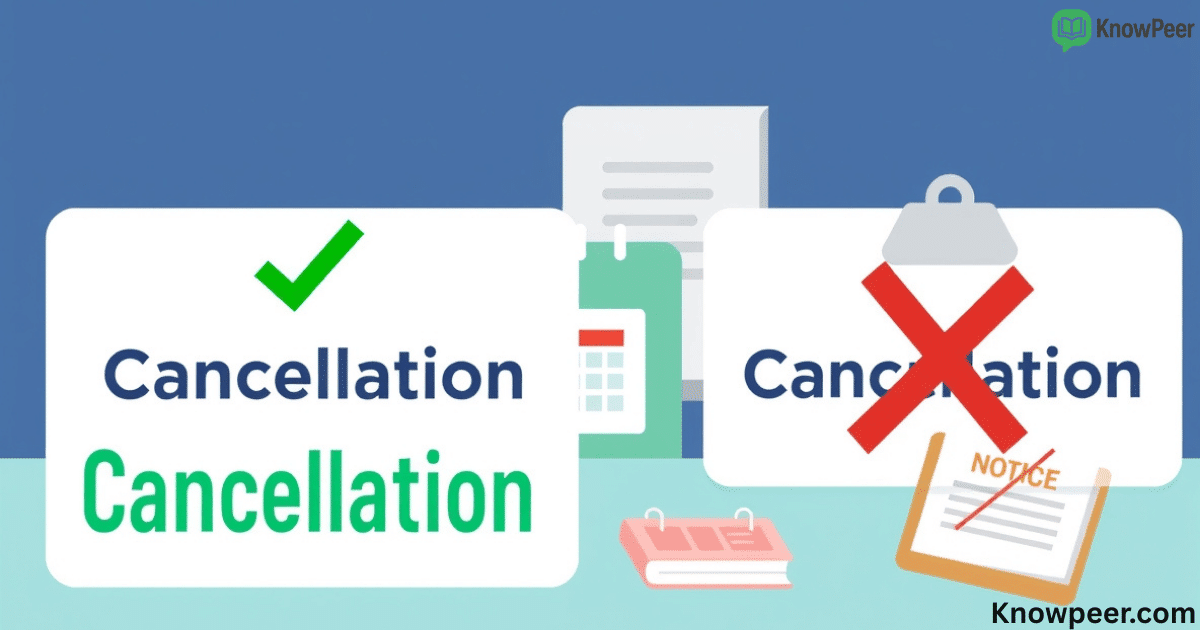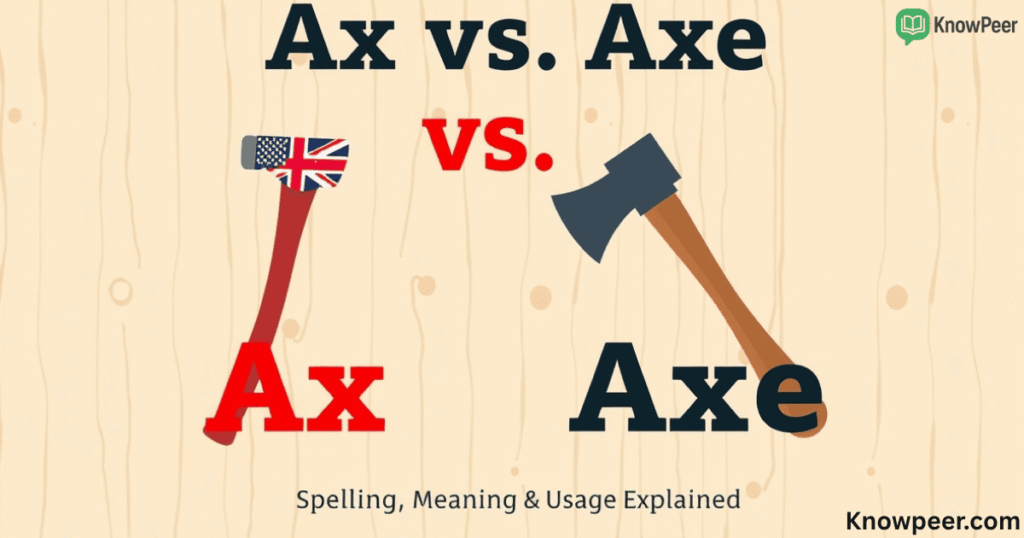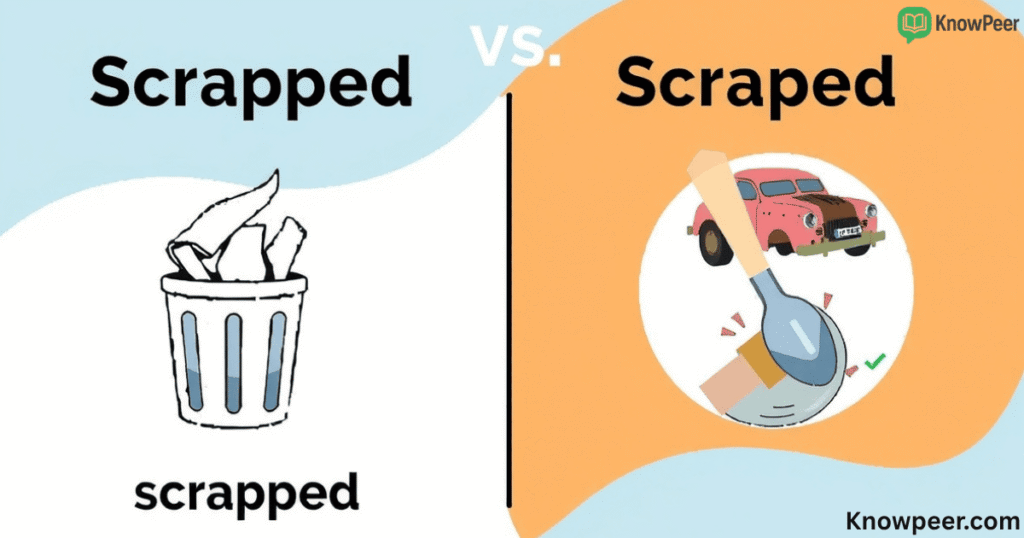Understanding the difference between pickup and pick up is essential for clear English writing. Many people confuse these terms because they sound similar but have different meanings and uses. This confusion often comes from grammar differences and varied contexts. In this article, you will learn the pickup meaning, the pick up meaning, grammar rules, examples, and how to use them correctly. By the end, you will have a complete guide for avoiding mistakes in pickup vs pick up usage.
English learners and native speakers alike make errors with this topic. Even professional writers sometimes misuse these forms. The truth is simple: pickup is usually a noun or adjective, while pick up is a phrasal verb. Understanding grammar rules and examples will help you write confidently and avoid mistakes.
Understanding “Pickup” vs “Pick Up”
People often ask, “Is it pickup or pick up?” This question comes from confusion about grammar and word forms. Pickup vs pick up grammar focuses on how these words are used. Pickup is a noun or adjective describing a thing or a type of event. Pick up is a phrasal verb that describes an action. This difference is important in grammar and writing style.
For example, “I will pick up the package tomorrow” uses the verb form. “I need a pickup truck” uses the noun form. These simple examples show the difference clearly. In American English, pickup is widely used as one word, especially as a noun. British English may use pick-up more often, especially with the hyphen.
Definition of “Pick Up”
The pick up meaning is broad and depends on the context. In grammar, pick up is a phrasal verb made of the verb “pick” and the adverb “up.” It describes actions that involve collecting, lifting, improving, or learning something. This makes it one of the most flexible phrases in English.
For example, if you say, “I will pick up groceries after work,” it means you will collect the groceries. Similarly, “She picked up Spanish quickly” means she learned the language. In both cases, pick up shows an action that is completed or in progress.
Pick up can also mean improving or increasing something. For instance, “Sales will pick up next month” means they will improve. In everyday conversation, people often use pick up in different ways: “I’ll pick up the call later,” meaning they will answer it later, or “He picked up the pace,” meaning he moved faster.
Learning the pick up meaning is key to mastering the pickup vs pick up difference in English. This phrasal verb appears often in spoken and written English, so understanding its uses is essential for proper grammar and effective communication.
Definition of “Pickup” and “Pick-up”
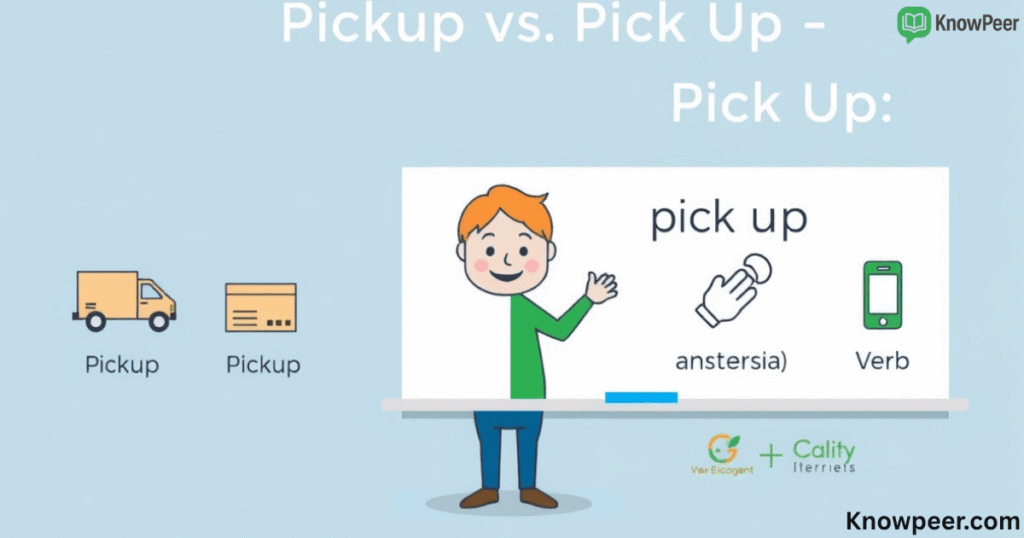
The pickup meaning as a noun refers to a physical object or event. A pickup can be a type of truck, an event where people gather, or a moment when something is collected. For example, “The pickup truck is parked outside” uses it as a noun. Another example is, “We have a pickup scheduled for tomorrow,” meaning a collection or gathering.
As an adjective, pickup describes something related to collection or increase. For example, “The company saw a pickup in sales” means there was improvement. British English often uses “pick-up” with a hyphen in formal writing, but American English uses pickup without it. Understanding this small detail helps you master pickup vs pick up differences in English.
When to Use “Pick Up”
Knowing how to use pickup and pick up correctly starts with understanding when pick up is the right choice. Since pick up is a phrasal verb, it usually describes an action. You use it when talking about collecting, improving, or learning.
For example, “I will pick up groceries” means you will collect them. “She picked up a new skill” means she learned it. These are both correct uses of the verb. Grammar rules require that pick up changes with tense: past tense is “picked up” and future tense is “will pick up.” This is important for correct writing and speaking.
When to Use “Pickup” or “Pick-Up”
Understanding when to use pickup and pick-up comes down to knowing whether the word acts as a noun or an adjective. The pickup meaning as a noun usually refers to a thing, an event, or a type of vehicle. For example, “The pickup is parked outside” uses it as a noun. It refers to a specific object, in this case, a truck. Similarly, “We have a pickup scheduled for tomorrow” means a collection or gathering is planned.
As an adjective, pick-up describes something related to collection or improvement. For example, “There was a sudden pick-up in sales” means there was an increase. British English often prefers the hyphenated form pick-up in formal writing, while American English tends to use pickup without a hyphen.
You should choose pickup or pick-up based on your audience and writing style. If you write for American readers, use pickup more often. For British readers or formal writing, use pick-up with a hyphen.
A simple rule for correct usage is to check if the word answers “what?” If it does, it’s likely pickup or pick-up. This helps avoid common errors in pickup vs pick up usage and strengthens your writing clarity.
Examples in Real Sentences
The best way to learn pickup vs pick up examples is through real sentences. For example, “I need to pick up my friend at the station” clearly uses the verb form. “The pickup of orders has improved this month” uses pickup as a noun describing an increase.
| Phrase | Form | Example Sentence |
| pick up | phrasal verb | I will pick up my daughter after school. |
| pickup | noun | The pickup is parked near the store. |
| pick-up | adjective | There was a sudden pick-up in demand. |
| pick up | phrasal verb | She picked up Spanish in a month. |
This table helps make pickup vs pick up usage clear. Seeing examples side by side improves understanding and confidence in correct use.
Synonyms & Related Terms
When exploring synonyms and related terms for pickup and pick up, it is important to consider their function in a sentence. The verb form, pick up, often refers to actions like collecting, learning, or improving. Common pick up synonyms include “collect,” “gather,” “acquire,” “learn,” and “increase.” For example, you can say, “I will collect the documents,” which can also be written as “I will pick up the documents.” Similarly, “She learned new skills quickly” can be phrased as “She picked up new skills quickly.” These alternatives help vary your writing while maintaining correct grammar.
For the noun or adjective form, pickup or pick-up has different synonyms. Pickup noun examples include “collection,” “gathering,” “increase,” or “improvement.” For instance, “The collection of donations was successful” is similar to “The pickup of donations was successful.” As an adjective, pick-up can describe growth or improvement, such as “There was a sudden increase in sales,” equivalent to “There was a sudden pick-up in sales.”
Knowing these pickup vs pick up synonyms improves clarity and avoids repetition. Using related words appropriately also strengthens your understanding of pickup vs pick up usage. It is especially useful for writing professionally, creating content, or communicating effectively in English, as it allows you to replace words without losing meaning.
Origins & Etymology of “Pickup” and “Pick Up”
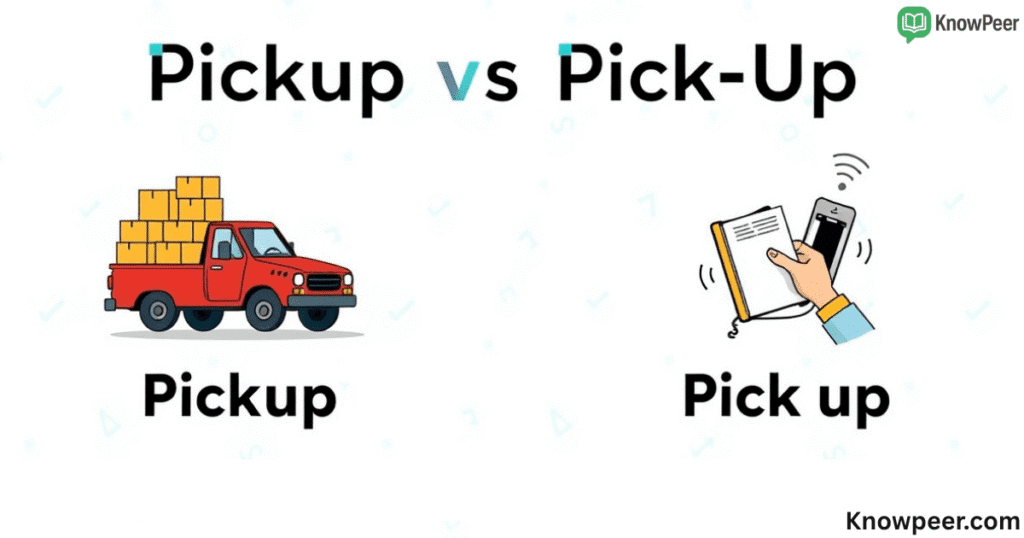
The terms pickup and pick up have evolved in English over centuries. “Pick up” originated from Middle English, where “pick” meant to choose or collect, and “up” added emphasis on completion. Over time, it became a common phrasal verb. “Pickup” as a noun appeared later, particularly in American English, and was often associated with the rise of pickup trucks in the 20th century.
Interestingly, the evolution of these words shows cultural influence. For example, American English adapted pickup heavily in automobile culture, while British English prefers pick-up in formal contexts. Understanding this helps learners avoid common mistakes in pickup vs pick up in American English and pickup vs pick up in British English.
Conclusion
To master pickup vs pick up difference in English, you must remember one simple rule: pickup is a noun or adjective, pick up is a phrasal verb. Correct usage depends on grammar and context. When writing, check whether the word describes an object/event (noun/adjective) or an action (verb). This check prevents mistakes.
| Term | Form | Meaning/Use |
| pickup | noun/adjective | A truck, a collection, an increase |
| pick up | phrasal verb | To collect, to improve, to learn |
| pick-up | adjective | Describing collection or increase |
Mastering pickup vs pick up grammar and examples ensures better writing. This knowledge improves clarity and avoids confusion. As English evolves, these words remain important for learners and native speakers. By applying the rules and examples from this guide, you can confidently use pickup and pick up correctly every time.

